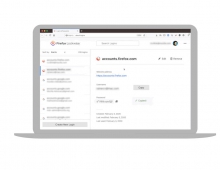
Firefox Enforces Secure HSTS Connections For Selected Domains
Mozilla introduced a pre-loaded list of domains for Firefox that only can be connected to securely in order to help protect the privacy and security of users.
HSTS (HTTP Strict Transport Security) is a mechanism by which a server can indicate that the browser must use a secure connection when communicating with it. It can be an effective tool for protecting the privacy and security of users and their data.
However, when connecting to an HSTS host for the first time, the browser won't know whether or not to use a secure connection, because it has never received an HSTS header from that host. Consequently, an active network attacker could prevent the browser from ever connecting securely.
To mitigate this attack, Mozilla has added to Firefox a list of hosts that want HSTS enforced by default. When a user connects to one of these hosts for the first time, the browser will know that it must use a secure connection. If a network attacker prevents secure connections to the server, the browser will not attempt to connect over an insecure protocol, thus maintaining the user?s security.
The "preload list" has been seeded with entries from Chrome's list of a similar function. To build the preload list, a request is sent to every host with 'mode: "force-https"' on Chrome's list. Only if a host responds with a valid HSTS header with an appropriately large max-age value do Mozilla includes it in its list. Mozilla also see if the includeSubdomains value for the entry on Chrome?s list is the same as what they receive in the response header.
Google's Chrome forces a secure connection for all google.com subdomains but also added forced HTTPS connections for sites that have requested it.
The feature is currently only present in Firefox Beta.
To mitigate this attack, Mozilla has added to Firefox a list of hosts that want HSTS enforced by default. When a user connects to one of these hosts for the first time, the browser will know that it must use a secure connection. If a network attacker prevents secure connections to the server, the browser will not attempt to connect over an insecure protocol, thus maintaining the user?s security.
The "preload list" has been seeded with entries from Chrome's list of a similar function. To build the preload list, a request is sent to every host with 'mode: "force-https"' on Chrome's list. Only if a host responds with a valid HSTS header with an appropriately large max-age value do Mozilla includes it in its list. Mozilla also see if the includeSubdomains value for the entry on Chrome?s list is the same as what they receive in the response header.
Google's Chrome forces a secure connection for all google.com subdomains but also added forced HTTPS connections for sites that have requested it.
The feature is currently only present in Firefox Beta.





















